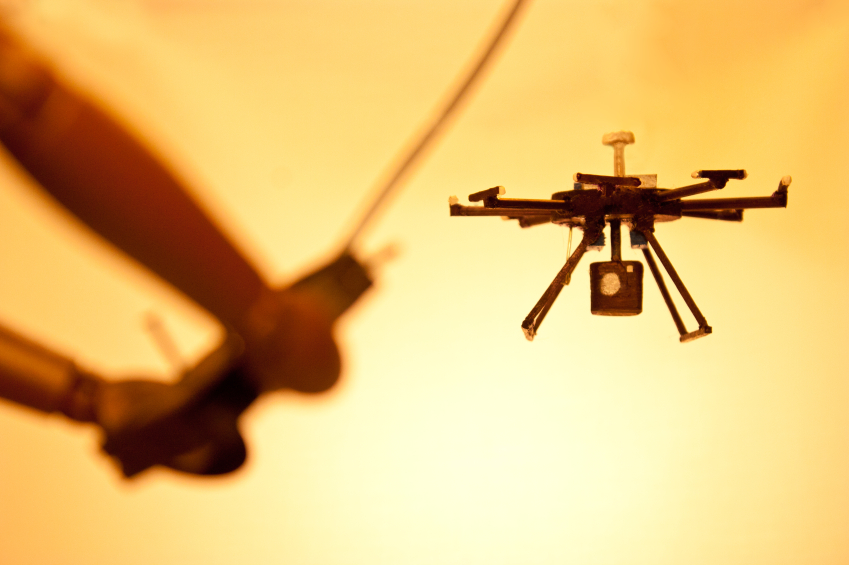 In the past, when a real estate firm wanted aerial shots of a home, it required hiring a helicopter service. This obviously meant shots from above were reserved for only the swankiest of swanksters. But since the FAA granted the use of drones for aerial photography last year, aerial photography and videography has literally taken off, allowing the everyday agent to snap high quality images of their listings from every angle. Drones can capture images from 80 to 300 feet above homes, offering buyers a bird's eye view. For cutting edge agencies, this view is becoming indispensable.
In the past, when a real estate firm wanted aerial shots of a home, it required hiring a helicopter service. This obviously meant shots from above were reserved for only the swankiest of swanksters. But since the FAA granted the use of drones for aerial photography last year, aerial photography and videography has literally taken off, allowing the everyday agent to snap high quality images of their listings from every angle. Drones can capture images from 80 to 300 feet above homes, offering buyers a bird's eye view. For cutting edge agencies, this view is becoming indispensable.
“Drone photography has become an invaluable tool for showing off an expansive home’s scope and proportions, as well as its larger setting,” said Joe Houlihan, managing partner of Houlihan & O'Malley Real Estate Services in Bronxville, N.Y. Drone shots not only showcase the home itself, but also its proximity to local selling points, like schools, train stations and shops.
However, drone owners can't get too trigger happy; a registration process for the use of drones is mandatory.
“Make no mistake: unmanned aircraft enthusiasts are aviators, and with that title comes a great deal of responsibility,” said U.S. Transportation Secretary Anthony Foxx. “Registration gives us an opportunity to work with these users to operate their unmanned aircraft safely [UAS]. I’m excited to welcome these new aviators into the culture of safety and responsibility that defines American innovation.”
Under this rule, any owner of a small UAS who has previously operated an unmanned aircraft exclusively as a model aircraft prior to December 21, 2015, must register no later than February 19, 2016. Owners of any other UAS purchased for use as a model aircraft after December 21, 2015 (hello, holiday gifts!) must register before the first flight outdoors. To help ease this registration process, the FAA recently announced a streamlined web-based aircraft registration process for drone owners.
Are drones taking flight in your market? How are you using drones in your real estate business? We'd love get your thoughts, so comment below, tweet us or email zoe@rismedia.com to share your success stories for inclusion in future coverage on Housecall and RISMedia.com!








PLEASE BE CLEAR….Registration of a UAV (Unmanned Aerial Vehicle) or a “Drone” is ONLY for Hobbyists or Recreational Users only. If you plan to use a Drone for commercial purposes such as filming for real estate videos…photography, etc. You are still required to go through the process of obtaining an FAA Exemption. The process to do so is located on their website. Simply registering your UAV does NOT give you a license to film for real estate videos.
Correct you are Robert. The Section 333 Exemption remains the only way we can legally use sUAS and UAS for video and photography.
There is a Cinema style to shooting aerial video. If someone has never used video for marketing homes then using an sUAS won’t be much help. Beyond the FAA requirements for safety and accountability there are types of video shots that make a difference between a Blahh video that viewers turn off, and WOW videos that capture attention to the end. There is an art to it. Buying a Ferrari does not make one a race car driver. Using an sUAS does not make one a successful aerial cinematographer. There is a huge difference between videography and cinematography. Those who get it will lead the pack, especially when using an sUAS.
Thank you so much for the clarity here. I have had numerous conversations with those supposedly “in the know” who consistently contradict each other. In summary registering alone does not make filming for real estate legal – we still must adhere to the FAA requirements of a legal Section 333 Exemption.